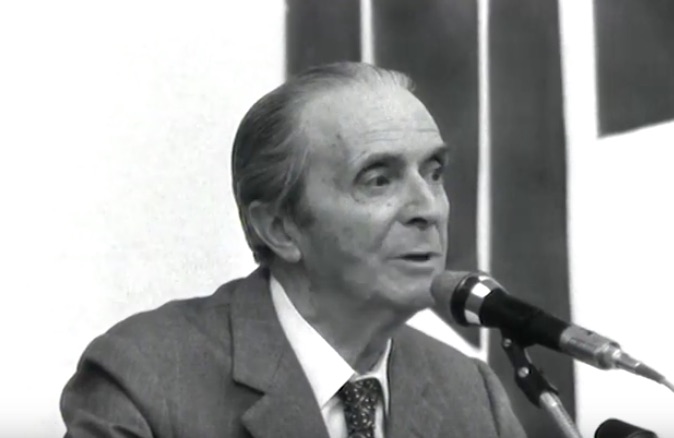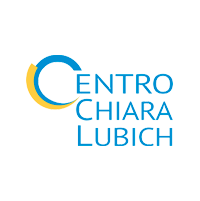Igino Giordani (1894-1980) was one of the last heroes of our time. His was a life spent on the front lines. He was in a military trench during the Great War; he was in a cultural and political trench during the Second World War. He was a bulwark of democracy while fascism was rampant.
He was in the trenches of the spirit when he joined the newly-born Focolare Movement, a new, original reality that was born well before the Second Vatican Council. He was a layman who, inserted into the structures of the Italian Catholic Church, glimpsed the new role that the laity would assume in the realisation of the aims of Christianity.
Can he be, then, a model for the present? These pages are meant to be a tool to get to know him better, to enter – as he would have wished – into friendship with him.
- 1894
born in Tivoli to Mariano and Orsola Antonelli, a working-class family; he is the first of six children
- 1900
starts primary school; when he is older, on his days off and summer holidays, he works with his father as a bricklayer
- 1905
After finishing primary school, he left school and worked as a bricklayer with his father for two years. He studied French from handouts (he would later learn Spanish, Portuguese, Romanian, English, German, as well as Greek and Latin)
- 1907
with the help of a benefactor who paid his fees, he entered the Diocesan Seminary in Tivoli, where he remained until 1912
- 1914
obtains a high school diploma. Wins a competition at the Ministry for Justice. Enrolled in the Faculty of Literature and Philosophy at the University of Rome
- 1915
conscripted in the Army, he was sent to the Cadet School in Spoleto and then to the Military Academy in Modena. In December he was sent to the frontlines in Isonzo as a Second Lieutenant in the 111th Infantry Regiment
- 1916
He reaches Mount Zebio on the Asiago plateau with his battalion
7 July – he was wounded in his right leg and hand during a military action, for which he received a silver medal. He spends three years in hospital, between the Baggina (Pio Istituto Trivulzio) in Milan and the War Hospital at the Palazzo della Regina Margherita in Rome, where he was able to prepare for university exams
- 1918
12 July – receives his degree with a thesis on ‘The Comedian in Dante’.
Begins teaching literary subjects as a substitute teacher at the R. Liceo Ginnasio Umberto I in Rome, where he remained until 1921
published his first articles in magazines in Tivoli and Rome (1918-1920) and his first pamphlet (on archaeology)
- 1920
2 February – married Mya Salvati in Tivoli; they moved to Rome. In autumn he met Sturzo and joined the Popular Party. In October he wrote his first political columns for ‘Il Popolo Nuovo’, the PPI’s weekly (he became its editor in 1924)
- 1921
Winner of a competition; in November he took up the post of teaching literature at R. Ginnasio in Nuoro
- 1922
January – He left his post and returned to Rome to work as a clerk and journalist in the PPI press office.
- 1930
he is invited by Piero Bargellini to write for the Florentine magazine ‘Il Frontespizio’; he continues to collaborate until 1939
- 1933
he published “Segno di Contradizione” (Sign of Contradiction), one of his most widely translated books with multiple editions (5′ ed. 1964)
- 1934
Founds and becomes Director of the School of Librarian Sciences at the Vatican Library
- 1935
Published “Il messaggio sociale di Gesù” (The Social Message of Jesus), the first volume of a series that Lagrange called ‘the indispensable basis of any study of social character of Christianity’. The other volumes were published in 1938, 1939 and 1946; they were collated to form “Il messaggio sociale del cristianesimo” (The Social Message of Christianity) in 1958; they were also translated, in part, into Chinese and Japanese; 8th edition 1963.
- 1940
during World War II, he worked with De Gasperi, Bonomi and other anti-fascist leaders to prepare the rebirth of democracy
- 1941
the 2nd edition of his book, ‘Catholicity’, is withdrawn from circulation by order of the regime authorities; a new censored edition is allowed
- 1944
24 April – he is called by Monsignor Montini to direct the school of journalism and to teach at the “School of Social Preparation” at the Lateran University
11 June – after the liberation of Rome the new Catholic Action newspaper, “Il Giornale”, was born; he contributed to its foundation and became its editor (1944-1946)
- 1946
2 June – elected deputy to the Constituent Assembly for the Rome constituency
1 August – succeeds Guido Gonella as editor of ‘Il popolo’ (1946-1947)
November – elected municipal councillor in Rome
- 1947
February – participates in a meeting of democratic representatives from 8 nations in Switzerland; proposes that the various parties inspired by Christian social doctrine unite with pacts of cooperation.
- 1948
goes to Spain for the Jaimes Balmes celebrations, and to France where he meets Gilson and Aron
18 April – is re-elected to the Chamber of Deputies
21- 28 April – as a representative of the Italian Catholic Action he participates in London at a conference of ‘Christian Action’, a movement of Christians belonging to all denominations and nations with the objective to give a Christian soul to the Western European Union
17 September – encounter with Silvia (Chiara) Lubich at Montecitorio (seat of the Italian Parliament)
dicembre – holds a conference in Lisbon, in Portuguese, on ‘Catholic journalism’ at the invitation of the newspaper ‘Novidades’. He visits Salazar - 1949
29 January – founds the weekly ‘La Via’ journal in Rome which ceases publication in May 1953
16 March – speaks to the Chamber of Deputies on Italy’s adhesion to the Atlantic Pact: ‘Let it be an instrument of peace and not of war.”
11-29 July – at the University of Fribourg, Switzerland, he lectures at an international course on the European crisis
3 October – together with Mr Calosso, a socialist, he presents the first bill on conscientious objection
- 1950
is appointed a member of the Council of the Peoples of Europe in Strasbourg
21 December – speaks in the Chamber of Deputies on the Giavi motion for the Korean War; calls on the government to mediate between the US and the communist bloc to end the war. Proposes the new philosophy: ‘if you want peace, prepare peace’.
- 1951
10 October – speaks in the Chamber of Deputies against arms spending; proposes the policy of love: communists are also brothers to be loved
- 1952
published ‘The Divine Adventure’, the first exposition of the spirituality of the Focolare Movement
- 1953
June – not re-elected to the Chamber of Deputies
he is President of the ONARMO Institute of Social Assistance, writes in the ‘Notiziario ONARMO’ and especially in ‘Il cappellano del lavoro’ (The Work Chaplain); (from December 1953 to the end of 1960)
- 1954
works as a consultant at the Library of the Chamber of Deputies, where he introduces a new cataloguing system; he remains there until 1961
teaches Social Thought of Christianity at the ‘Pro Deo’ International University
- 1959
Assumes the direction of the periodical ‘Città Nuova
Together with Chiara Lubich he founds the St Catherine Centre
At the invitation of the Canossian Sisters, he visits their missions in Asia
- 1961
Publishes ‘The Two Cities’, an expression of the maturity of his political-religious thinking
July – directs the weekly ‘L’Unione’, organ of the Christian Social Centre (1961-1962)
Becomes director of ‘Centro Uno’, the ecumenical secretariat of the Focolare Movement
- 1962
The magazine ‘Fides’ is closed; he remained its editor till the end
Member of the Consiglio Superiore della Pubblica Istruzione until 1966
- 1964
Published ‘Laity and Priesthood’, a clear anticipation of the Theology of the Laity expressed by the Second Vatican Council
- 1965
appointed director of the International Institute ‘Mystici Corporis’ in Loppiano (Florence).
- 1974
After the death of his wife, Mya, he went to live permanently in a focolare centre in Rocca di Papa, adjacent to the Mariapolis Centre. He actively took part in the life of the Movement; he spoke at the meetings of all the branches and at ecumenical conferences; he nurtured relationships especially with the young people; he wrote his last books including “L’unico amore” (The Only Love), his memoirs and others, still unpublished; he continued to write in “Città Nuova” (until December 1979)
- 1977
he participates in the conferral of the “Templeton Prize” to Chiara Lubich in London
- 1980
April – the book “Diary of Fire” is published
18 April – his life on earth ended




